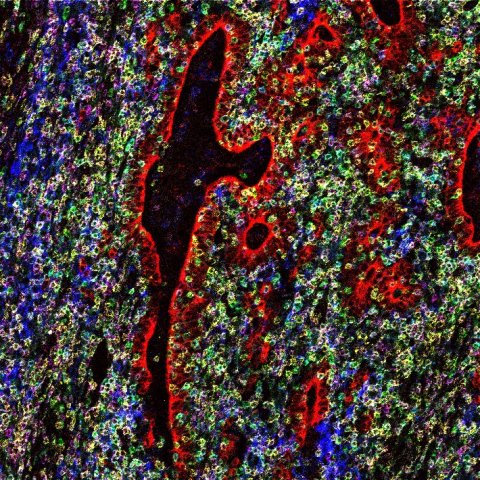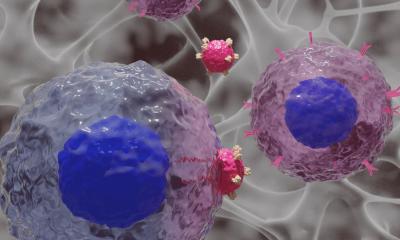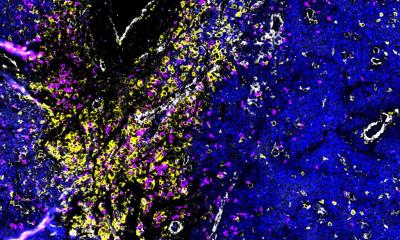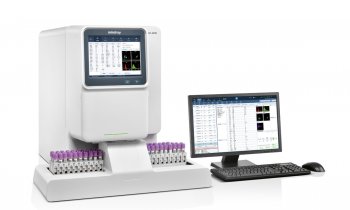News • Specialized immune cells
γδ T cells carry potential for new cancer immunotherapies
Scientists from Leiden University Medical Center (LUMC) and Netherlands Cancer Institute (NKI) have discovered how specialized immune cells can detect and remove cancers that are ‘invisible’ to the conventional defense mechanisms of the immune system.

Image source: LUMC; from: de Vries et al., Nature 2023
Their work has been published in Nature. The findings could lead to novel cancer immunotherapies.
Normally, the recognition of abnormal cells in our body is a task for T cells, one of the most important white blood cells of the immune system. These cells can recognize many types of abnormalities, including viral and bacterial infections. But the immune system sometimes has trouble detecting cancer cells. Cancer cells are only recognized by T cells if a specific molecule is attached to their surface. In order to escape immune recognition, some cancers lack such molecule and become ‘invisible’ to T cells.
Recently, researchers of the LUMC and NKI stumbled upon a strange phenomenon: some patients with ‘invisible’ cancers respond very well to cancer immunotherapies. These therapies rely on antibodies that activate or reinvigorate the activity of T cells. “Since these cancers lack the molecules which enable T cells to identify them, we did not understand why patients responded so well to the therapy,” says Noel de Miranda, Associate Professor at LUMC Department of Pathology.
These immune cells [...] will be particularly important to treat cancers that are not susceptible to elimination by ‘conventional’ T cells
Emile Voest
Research on cells drawn from patients that were treated at NKI now shows that γδ (gamma delta) T cells - a lesser known, specialized immune type of cell - are capable of detecting cancers that are invisible to conventional T cells. De Miranda: “This shows that there is a backup system in our immune system. When the main way of recognizing tumor cells does not work, we have a second line of defense. Our findings could eventually lead to new treatments for ‘invisible’ tumors with γδ T cells.
“We are only beginning to unveil the tremendous potential that γδ T cells carry for the development of novel cancer immunotherapies”, says Emile Voest, Professor of Medical Oncology, group leader at the Netherlands Cancer Institute and Oncode Investigator. “Going forward, we will try to gain a better understanding of how these immune cells work in the body of cancer patients, and how we can make use of them to develop novel immunotherapies. They will be particularly important to treat cancers that are not susceptible to elimination by ‘conventional’ T cells.”
Source: Leiden University Medical Center
16.01.2023











